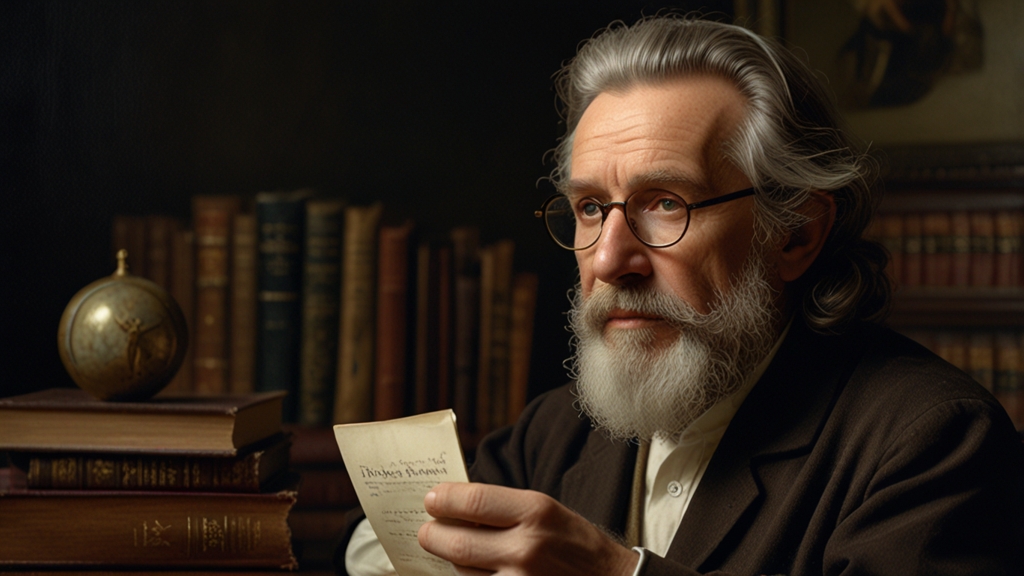Why Genesis is More Than Just a Religious Text
The Book of Genesis, the first book of the Bible, is often exclusively attributed to religious scripture and theological insights. However, limiting Genesis to just a religious text overlooks its broader cultural, historical, and philosophical significance. The narrative, themes, and lessons it encompasses have had profound impacts on various aspects of human knowledge and societal development. Exploring Genesis through these additional lenses reveals its multifaceted importance.
A Cornerstone of Western Literature
Genesis has profoundly influenced Western literature, with its themes, archetypes, and narratives recurrently reflected in multiple works. The Creation story, the Fall of Man, the Great Flood, and the tales of the Patriarchs have provided fodder for innumerable literary creations, allowing writers to explore the human condition, morality, and the relationship between humanity and the divine.
"In the beginning, God created the heavens and the earth." These opening words have not only defined Genesis but have also been a critical reference point for countless literary explorations. Works from John Milton's Paradise Lost to James Joyce's Ulysses draw inspiration from Genesis, proving its enduring literary relevance.
A Historical Text
While some may argue the historical accuracy of Genesis, its value in providing historical context to ancient cultures is undeniable. The stories of Genesis reflect the ethos, beliefs, and traditions of early societies in the Near East. They offer insights into ancient cosmological views, social structures, and human behaviors from a period of history for which concrete records are sparse.
The genealogies, for instance, serve as historical timelines, linking ancient figures and events. They offer a cultural understanding of ancestry and lineage, which were pivotal in the identity and continuity of these ancient cultures.
Philosophical and Ethical Narratives
Beyond its religious connotations, Genesis delves into profound philosophical questions concerning existence, morality, and human nature. The Creation narrative prompts inquiries into the nature of the universe and humanity's place within it. The stories of Adam and Eve, Cain and Abel, and Noah and the Flood explore themes of temptation, guilt, justice, and redemption, echoing essential ethical debates in philosophy.
For instance, the story of Cain and Abel addresses the nature of sin, free will, and moral responsibility. It delves into the complexities of human emotions such as jealousy, anger, and guilt, providing a narrative framework to discuss these universal human experiences.
"Am I my brother's keeper?" This poignant question raised by Cain after murdering Abel succinctly encapsulates a timeless ethical dilemma concerning human responsibilities towards one another, a question that continues to resonate in contemporary moral discussions.
An Influence on Art and Culture
Genesis has also had an indelible impact on art and culture. From the Sistine Chapel's ceiling painted by Michelangelo, depicting the Creation, to modern films and music, the stories and themes of Genesis have been a rich source of artistic inspiration. These artistic interpretations help reveal and explore the depth and nuances of the Genesis narratives, making them accessible and relevant to successive generations.
Similarly, cultural rituals, traditions, and expressions often find their roots in the stories of Genesis. These narratives transcend the religious domain, influencing communal and cultural identities across different societies.
Conclusion
In conclusion, the Book of Genesis is undeniably a religious text at its core, but it extends far beyond that singular dimension. Its literary richness, historical insights, philosophical depth, and cultural impact highlight its significant role in the broader spectrum of human knowledge and civilization. Recognizing Genesis's multidimensional contributions allows for a more comprehensive appreciation of its place in history and its ongoing relevance in contemporary times.








